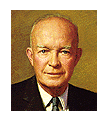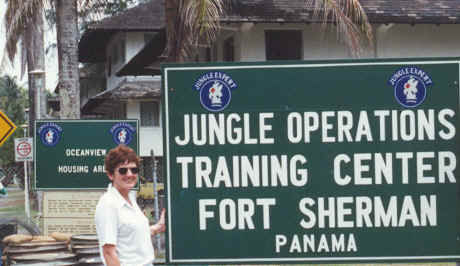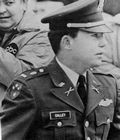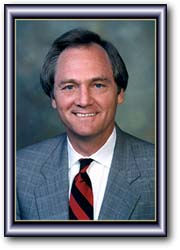|
Political
Non-sense: Ann
Rosenthal |
As Smith (1995) correctly points out, political paradigms are not predictive, and that's as far as the models work in my case. My hard-working, blue-collar parents produced an ultraconservative, right-wing Republican who eventually became a political dissident. Smith says that each of us who becomes involved in politics is a category of one, a case study. To the extent that we are each highly unique in our evolution and our political ideologies, I agree. However, politics is not about ideologies. It is about power--getting it, spending it, using it, abusing it, having it, losing it, and amusing oneself and others with the resources it provides. Most of the current literature relating to politics talks about power. Goldberg, Cavanaugh, and Larson (1984) identified politics as one aspect of power. Tormont Webster (1987) defines politics as the science of power. Most scholars in all fields where power is considered define what constitutes power and delineate types and/or hierarchies of power. The term power broker implies that power is a commodity. An unidentified journalist claims that Castro, "after forty years of power," maintains his "unwavering addiction" to Stalinism (March 6, 1999, Economist p.22). Based on my own case and in search of a paradigm to explain individual political evolution, I wonder if that addiction is due more to power than it is to ideology. While the connection between power and politics is well established and environmental factors have been known to lead to addictive behavior (Holman, 1994) , the question still remains: How does one become a "politician?" I believe one paradigm does relate to those of us who have done politics, but it is not a political communication theory. It is crime. You have to have the means, motive, and opportunity to do both. Committing the first act My mother, reinforcing the family roots of political identification, also played the role of my Fagin regarding politics. A working woman, she ran her own grocery store/gas station until a politically placed highway took traffic away from her storefront. With a tenth-grade education, she later took on local school board officials and demanded hot meals at our two-room country school which was heated with coal-burning stoves and serviced by outdoor toilets. She organized a group of local women to go away to Oklahoma State University and learn to cook for a cafeteria from big recipes. When she and the white teachers disagreed about how the cafeteria should be run, she quit working there and made us take our lunches, again in protest. She also pulled her entire brood of six children out of a Freewill Baptist church which wanted to excommunicate a member because she was "living in sin," and she started her own independent congregation. At 5'4" and under 100 pounds, Suson Gertie Atchley Bartley was hardly a powerfully imposing figure, even with her long black hair, black eyes, and olive skin. Nor did her socioeconomic status convey power. The source of her ability to gain control of situations, that is, to exert power, was her willingness to seize opportunities and to compete for the right to control resources. In other words, politics gave her power. Social learning theory seems to work here, because I modeled her behavior. She first volunteered
me at about age nine to pass out advertising materials--more than 150
feet from the polls, of course,--for a red-haired, Democratic gubernatorial
candidate named J.
When I was in high school, my mother happened to know the couple who acted as Mayes County Republican Party co-chairs, and she mentioned the fact to me. She told me that they needed somebody to go down to the courthouse and type a duplicate list of registered voters, this being before the days of copy machines and way before electronic data transfer. I think she believed that this was a real job, but it turned out to be a volunteer effort. It made no difference to me. I already had the motive: power and the resultant adrenalin high. Means and opportunity At this point, the only power I had was a little more information than the average person, but it was enough. All addiction seems to begin with small amounts. This gave me the opportunity and the means (volunteerism and my personal time) to become involved. I still remember vividly the first hint of corruption which I personally unearthed. I could hardly eat or sleep for a week. My Republican mentors decided to let me do a little digging at the courthouse through public records since the people there were used to my being around. (I think I was about fifteen years old.) I got hold of some invoices for "new furniture" from one of the county offices. I wrote down all the information and paid a visit to the office where the new furniture was supposed to be--the local Sheriff's office. The invoice for $1500 didn't quite match the only purchase for which the office could account, a $150 manual typewriter. The Republican Party had a field day with that little piece of information, and an office holder was ousted the next election. I don't even remember who it was. My actions were not about altruism. I barely knew what government was and certainly had no concept of what better government might be. Because of my diligence and cheap (free) labor, I also got invited to sit in on what turned out to be a peek at history being made. Henry Bellmon, then the state party chairman and a well-to-do wheat farmer, visited Mayes County on some party business: the party's nominee for governor. It seems that the perennial candidate, Happy Camp, had decided not to run, leaving the top of the ticket blank.
Republicans in Oklahoma politics were, in those days scarcer than hens' teeth. The get-together happened in the board room of a small branch bank, and the two county co-chairs, Bellmon, and one or two others were there besides me. Bellmon casually said that he could afford the qualifying fee, and, if nobody else came forward, he would just put his own name at the top so the party would have somebody's there. The rest of that race is well written about, Bellmon becoming the first Republican governor in the history of the state of Oklahoma due to a split in the Democratic forces. The early sixties were a little rockier going as winning football coach Bud Wilkinson was dragged to defeat in his run for the U.S. Senate on the coattails of presidential candidate Barry Goldwater. I survived being a visible member of Bud's Belles, and I hung on as vice-president of my Young Republican group in college. At 21, I became the forty-second Republican on the Bryan County rolls, the titular--if meaningless--district party chair, and managed to see yet another Republican governor elected. Just out of college and needing to support myself, I joined Uncle Sam's blue suiters which does not, despite what you've been told by the political scholars, mean that you're out of politics. It just throws you out of party politics and into a different theater of operations. As a young lieutenant at an Air Force installation, I observed the process of bringing a new weapon system (translation: airplane) into the inventory. That airframe was due to be delivered on a certain day which (so the whispers declared on the base) happened to have serious political significance for a concerned politician, and sure enough, it rolled right out onto the ramp. I have always wondered if those rumors were true when it sat there, NORS (not operationally ready status) for a month for parts because those had not yet been warehoused. This essay is not, however, about military politics. It is about politics as a genre of human activity, and politics is about one thing no matter where it occurs. It is about power. Lieutenants don't have any power,--especially female lieutenants in the late 1960s--and I did not like the military. Even command of my own squadron did not provide the rush that political involvement could give. My newly acquired spouse and I chose Alabama as a place to locate so he could pursue a professional degree at a state university. I had been in the state only a short time when the issue of party politics came up at my place of employment. One of the reporters for the newspaper where I worked became actively involved in George Wallace's bid to regain the statehouse. Nobody with any sense declared themselves to be Republicans in Alabama. I saw history being on the side of change and willingly admitted to being a voting Republican. You do not have to register by party in Alabama. Thus it was that my picture was taken welcoming the Republican gubernatorial candidate to Lee County. (I do not even remember his name, and I am not absolutely sure that was the office he was seeking. I do not keep scrapbooks. Memory does not equal power.) This public recognition was to provide the means and opportunity for my future involvement in state politics. I tried working for the government again and lasted about two years, surviving a brush with the William Calley and Daniel Ellsberg trials, before ending another episode of civil service. Civil servants do not have real, adrenalin-pumping power. I learned that the United States Justice Department does, especially when it comes to managing politically volatile subjects such as national security. The subject of my ensuing graduate studies at Auburn University made me acutely aware of the plight of public education in the state and gave me additional motive for reentering the political arena. Becoming a reserve-status spokesperson for an air national guard unit gave me the means and opportunity. Motive On reflection, somewhere along the line I convinced myself that I was doing politics for altruistic reasons. I denied wanting employment when I aided candidates in raising money for political office, but secretly I enjoyed the power this denial provided. I was building a credit balance of power. I liked being able to pick up the telephone and call somebody who was in a position to know what was going on and know that they would feel obligated, and even safe, in sharing inside information with me. I liked being able to help the powerless individuals who called on me when they had problems on their state jobs. I liked knowing to whom I could give information and see actions taken. Being behind the scenes was the best place of all to be in politics, and especially behind the scenes as a fundraiser. Most people simply cannot ask someone else for money, not even when it is for a "good cause." It never bothered me at all. I will even admit to having helped a couple of Democratic candidates; one successful, the other not. It gave me an adrenalin rush knowing that I knew who ought to contribute to what and why they would be motivated to do so. All of it was within the law. The crime Running
for office
During this two year withdrawal period, one of the candidates for local office whom I had helped, Montgomery County Commission Chair, Joel Barfoot, asked me to have lunch with aspiring gubernatorial candidate Guy Hunt. I found him to be a nice man, unpolished and naive, but sincere. His intelligence far outweighed his lack of education, and I genuinely like him. Admittedly, I did not buy his Calvinistic view that God had preordained that he, Hunt, would be governor. Again I raised money, but this time I did not trust anybody. I watched the people around me as though they were each potential enemies. I knew Hunt would be elected because I saw the split in the Democratic ranks which had already formed and instantly made the comparison to my earlier experience in Oklahoma. This election, too, is well recorded historically. Title without power A few things are not recorded. The Republican party structure in the state did not embrace Hunt with open arms. A born again Democrat (that is, a Republican who had changed his registration), Charles Graddick, was rumored to be the preferred candidate of the Republican state party chairman, Emory Folmar. I personally never heard him say so, but, when I went to the local county executive committee meeting to ask for support for Hunt, being an officially designated campaign finance director, the reception was chilly. Folmar told the group that he didn't think "we" had much chance to win in the gubernatorial race and that we probably ought to concentrate our efforts on local races. In Emory Folmar I believed I had met a power addiction even greater than my own. Hunt, although he was the duly elected candidate, did not have the power to call party resources into use. Identification as a Hunt campaign official weakened my ability to raise funds. As I called wealthy Republican party donors, I was often met with the response, "Ann, let's just support Charlie. He's really a Republican. Guy Hunt doesn't even have a college degree." One wealthy business woman, and potential donor, was even making a public bid to build statewide recognition through a quarter of a million dollar advertising campaign. She told me how much she had spent when I visited her to ask for money for the Hunt campaign. I had enlisted the aid of Campbell Neel Associates, a Republican political campaign consulting group, consisting of Jack Campbell and Bob Neel, both thirty something and well connected to state Republican politics. Jack and Bob were both in the office when June, whom I already knew, said to me that what we ought to be doing was talking Hunt out of running. She expressed the opinion that he was not the right person to lead the state. "What would it take?" she asked. She then mentioned Hunt's daughter who needed special schooling and suggested, "A million?" "You know," she began, and then told me of her own political ambition. I gently reminded her that she and Emory were not likely to be any more compatible than Emory and I were. I told her that I could not see Emory going along with appointing her the party's candidate if Hunt did step down; that he was more likely to engineer himself as replacement. She did not give me a check for either support of the Hunt campaign or to end it. I'm not suggesting that this was a bribery attempt. I believe that she was trying to buy my services as a political advisor. Sometimes, politics, even when it is legal, is not ethical. What one person may see as politically correct and "in the best interests of the people" may be seen by another as anathema. My introduction of Jack Campbell and Bob Neel to Guy Hunt is also not recorded nor their subsequent participation in the Hunt campaign. Jack was the son of a local Republican and had worked for the Republican Party in another state. He was smart and politically savvy, but he had a colorful vocabulary, as we euphemistically refer to curse words in the South. Guy Hunt was a Primitive Baptist preacher and not a respected part of the Republican establishment. Hunt and Campbell were incompatible. Bob Neel was not locally connected and more willing to accommodate to Hunt's behavioral standards. Although their association did successful direct mail fundraising for the Hunt campaign, Neel signed on as a salaried campaign staffer, dissolving the partnership. Nor is Hunt's obsession with security recorded. I once drove to Birmingham to meet Hunt and his entourage at a motel and was told to ask for some unfamiliar name which he had used to register. This flew in the face of all reason when you consider that Hunt is well over six feet tall, lanky, and has silver gray hair and a distinctive visage. Media leaks, too, are rampant in any political campaign, since information can be traded for the power of media attention. Hunt attributed some of the leaks to me and some to Spencer Bacchus, his campaign manager. Spencer dropped out to run successfully for the state school board and later Congress. I just dropped out in disgust, but not until after the election was over. I held on to the purse strings by maintaining control of one of the bank accounts, Friends of Guy Hunt, Montgomery. Fortunately, I retained legal counsel to review and notarize my reports to the Secretary of State's office. The inaugural activities fund, on the other hand, was misspent, according to the courts, and Hunt, too, eventually fell from power. Power begets power The irony of power is that it is given to you simply because you have it. While I was off fighting in the "Hunt for Governor" trenches, my mail piled up in a cardboard box at home. After the election, as I plowed through the junk mail, I found envelopes from Secretary of State Siegelman's office. Now this is enough to strike fear into a fundraiser's heart since these could have been forms to file, which I did not know about and that would now be late. I began ripping them open and learned that I had been appointed, in my absence, to a committee on handicapped accessibility to polling places. Also in my absence, the committee had completed its work successfully. My reward for this "service" was a letter of commendation and a lovely certificate with a nice gold seal. Later on I also "served," under similar conditions, on Attorney General Siegelman's commission on drug enforcement. Fundraiser to activist What is also not recorded is the effect that election had on this particular politician. Just as the Bellmon election had sold me on politics as an avocation, the Hunt election opened my eyes to the real crime of politics. I was offered money, in front of two witnesses, to convince Hunt to withdraw from the race in favor of another candidate. I saw partners become enemies. I saw people leave their families to fend for themselves while they rode political bandwagons to defeat. Grown men and women work as volunteers in campaigns for one reason: To get jobs. To the victors belong the spoils. Whatever political power I had gained was offset by my inability to control my own personal life and private environment. The power of being on the inside was far offset by the terror of knowing what some people would do to keep from losing power. I eschewed party politics and threw myself completely into advocacy. I was for public schools and against increasing property taxes. I formed a group called "BEST," Backing Excellence for Students and Teachers, as a platform for opposing a local property tax increase. I recognized a fellow power addict in a local school official who wanted to make a mark by obtaining a forty million dollar bond issue to build elaborate new structures. I became the media focal point for the anti-tax forces. Mary Anne Moore, a reporter for the Montgomery Advertiser, told me during an interview at my home, that I had "star quality." Twenty years earlier, that would have been a compliment to me. This time, I reacted with aversion. I was invited to sit on the board of directors of a statewide anti-tax group, Alabamians Against Unfair Taxation, a well funded group which included insurance industry, poultry, and cattle industry leaders. We, too, won. I gained power in a new direction, but it was never again the same heady feeling it had been in my idealistic youth.
However, feeling the rush of air of a bullet passing very close and experiencing first-hand the horror of death do have their impact on adrenalin addiction, and I guess I overdosed in Central and South America. When a media representative from Alabama asked me how things were in Panama, I quoted a senior US Southern Command official who alluded to Potemkin's false images built to convince Catherine the Great that the conquered people were happy to be under her auspices: "Nothing is as it seems in Panama," I said. Those words produced a tremendous backlash of administrative displeasure when they appeared back home in a wire service story and attributed to me. George Bush, whose war of information was the one in which I had been engaged, was a candidate for President of the United States. Although, given his own gift for real faux paux, I would have thought he/his supporters should have been a bit more understanding. I forever lost the power of the public forum. Democrats Part of the cause of my fall from grace might have been my small slips in helping the enemy. An unsavory aspect of power addicts is that they know no loyalty. Powerlessness to achieve through one means simply leads the power addict to try other available means. Psychology professor George Boeree explains this aspect of personality development in terms of Eriksonian theory:
One of the Democrats I helped was a candidate for a local school board election. My children were both in the system, and I had an active interest. The Republican-controlled board was riddled with the usual "my cousin on the planning commission" sorts of problems. Too many people had too many ties to too many commercial concerns, such as real estate, which were directly impacted by decisions about where and when school money was spent. Couple this with a strong, state educational association lobby, and the impetus can be understood for the bloody battleground scenes occurring at regular school board meetings. One example was the extensive national search for a superintendent to oversee the 33,000-pupil system. Called by system opponents a sham from the onset, the search ended with the selection of the least well credentialed candidate, who was a local system employee acting as superintendent. Sandy Barnett, an articulate mother of two, and the most nontraditional, stay-at-home mother I've ever known, decided to take the system on by running for office. I just couldn't resist the feeling of power that comes with doing the right thing. I supported her quietly, but even put her in contact with Republican professionals who admired her courage. I still wasn't motivated by altruism. The powerful rush of adrenalin her election gave me only fed my addiction more. Erikson's maladaptive tendency of ruthlessness became manifest. As further evidence, I offer the example of my support for a Democratic candidate . Jim Zeigler had been a fiery public service commissioner and was attempting to gain the Democratic party nomination for State Treasurer. His opponent was George Wallace, Jr. True, Wallace's credentials didn't bear close scrutiny, and I'll admit to using that in helping Zeigler raise money. I called groups whose interests were at stake and told their political action committee purse holder that they "didn't want to see little George's Uncle Gerald" still have a friend in the financial courts of state. It was a money winning argument. Unfortunately, the Wallace machine had much better local infrastructure, and I was so seized with the power of funding the campaign that I neglected to advise Zeigler of his need for poll security. The results were hair-breadth close. I didn't even like Ziegler and judged him to be even more of a power addict than I. He took the loss hard and deserted into the unwelcoming arms of the Republicans. What was the crime? Was it political acts? Was it events which precipitated my fall from grace? Was the crime politics or was it an addiction to power? All I know is that I had the means, motive, and opportunity, and, like a criminal, that's all the power addict needs to commit politics. Mine is one case in point, but manifest maladaptive tendencies in other politicians' behavior have been well documented in the media. The
pardon and parole
Fortunately, American society grants pardons for criminal acts and political ones. A series of serendipitous coincidences landed me in Mississippi and subsequently in the doctoral program at the University of Southern Mississippi. I took a suicidal leap from power to powerlessness. Nobody is lower than a single, doctoral teaching assistant living in a blue-collar apartment complex and raising two children. When I finished my course work, I got a job at a small, private, well regarded college. And I experienced my first slip from my recovery as a power addict. The president of the college, to any garden variety communication scholar, was clearly deceptive. Political prediction paradigms may not work very well, but those nonverbal scholars have developed some pretty good criteria for spotting a liar. They may not be able to tell what one is lying about, but they can spot deceptive behavior. The knowledge , however, thrust me once again into a rather uncertain position. I had been successfully taking my recovery one day at a time, but I was sorely tempted to wield the power to unseat this duplicitous person. I was dating a staff member who also was wise to the fact that things were not quite what they should be, and he had connections to people who could do something about it. His job was outsourced, and a very low paid employee who had also dared to question a decision by the president was not offered a new contract. The temptation was too great, and I played a little politics. I also had to walk away from a job I really wanted and liked. Lewis Nobles, former President of Mississippi College, however, went to federal prison.
Making sense of nonsense In retrospect, maybe I was more of a Forrest Gump than a John D. Rockefeller. Maybe I, as politician, cannot be explained at all. The purpose of this essay was, after all, not to explain all politics, but rather to do a participant observer case study to explain why politics cannot be predicted through the use of political theory. Politics is a human behavior which manifests, like crime, when one has the means, motive, and opportunity to commit, that is, perform it. Each politician is one of a kind, but, as George Wallace said, "There's not a dime's worth of difference" between Democrats and Republicans. If that sounds contradictory, then you understand perfectly. Politicians are individuals seeking power. That's how we are alike. Where we started down the path to our vocation/avocation, our actions along the way, and the crooked path we followed defy prediction based even on the knowledge that the function of politics is power. It should come as no surprise that a logical analysis of routes to power is inherently impossible. After all, Kant concluded that reason diminishes in the presence of power. Yet, my own power addiction may subjectify my view of all other politicians. Maybe Smith was right and even this paradigm fails to predict the altruistic behavior of some political figures. I wonder if there is power in being right? |

|
|||||||||||
|
"Now
is the time for
all good men
to come to the aid of their country." |
???
??? ??? |
|||||||||||
|
Bandura, A. (1977). Social learning theory. Englewood Cliffs, NJ: Prentice-Hall. Beck, P. A. & Jennings, M. K. (1975). "Parents as 'Middlepersons' in political socialization," Journal of Politics, 37, pp. 83-197. Newsweek, June 13, 1983, UNITED STATES EDITION, NATIONAL AFFAIRS; Pg. 22, 713 words, A Macho Mayor Vs. His Hometown, MARK STARR with HOLLY MORRIS in Montgomery The Atlanta Journal and Constitution, January 25, 1995, NATIONAL NEWS; Section A; Page 3, 701 words, Around the South 'Wonderful' or embezzler? Baptist college in shock as criminal trial nears for former president, By Jim Yardley STAFF WRITER. The reference to "Uncle Gerald" means George Wallace's brother, George, who was in the insurance business. |






 Fortunately, or perhaps unfortunately, Uncle
Sam again pointed his finger at me, and I responded readily to the opportunity
to run away to Central America. That year, 1988, was spent again in
the military political arena, a participant observer in a war of information,
and this essay is still not about that subject. I do occasionally reflect
on my discussions with Bolivians in the market places of Cochabamba
about the 1988 elections in the U.S. Bolivians of Indian
ancestry not only knew about the U.S. political races, but some thought
it mildly amusing that North Americans, too, had elected, as president,
an Evita, a former actor (Reagan), and were now going to surely elect
a man whom they saw as a former head of the national secret police (Bush).
Most of them thought I was Uruguayan or French. None knew I was
from the United States.
Fortunately, or perhaps unfortunately, Uncle
Sam again pointed his finger at me, and I responded readily to the opportunity
to run away to Central America. That year, 1988, was spent again in
the military political arena, a participant observer in a war of information,
and this essay is still not about that subject. I do occasionally reflect
on my discussions with Bolivians in the market places of Cochabamba
about the 1988 elections in the U.S. Bolivians of Indian
ancestry not only knew about the U.S. political races, but some thought
it mildly amusing that North Americans, too, had elected, as president,
an Evita, a former actor (Reagan), and were now going to surely elect
a man whom they saw as a former head of the national secret police (Bush).
Most of them thought I was Uruguayan or French. None knew I was
from the United States.







